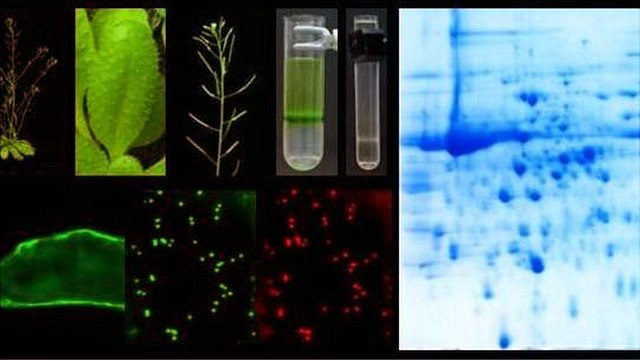Plant Biochemistry & Infection Biology
Welcome!
In our international research unit we investigate how important processes work at the molecular level in plants. Why do some plants need only little light to grow efficiently? Why are many wild plants resistant to pathogens? How can some plants adapt to extreme heat conditions?
It is fundamentally important to fully understand at least in a few representative model plants (e.g. Arabidopsis) how photorespiration, lipid metabolism, pathogen defence systems and stress tolerance are fine-tuned. This basic knowledge is prerequsite for the improvement of agricultural productivity of crop plants in the long term and is urgently needed to ensure the steadily growing global demand for food and biofuels in the 21st century.
Like in animals and fungi, the functionality of plants is largely determined by "competence centres", namely the so-called cell organelles. Best known are mitochondria, chloroplasts and the cell nucleus . Our primary research objects are "peroxisomes", which are small cell organelles of bacterial size that were discovered relatively late. In spite of their vital importance these cell organelles remain investigated insufficiently in many aspects. Only recently fully unexpected novel competences and tasks of peroxisomes were discovered.
The research of the working group of Prof. Dr. S. Reumann concentrates on functional and mechanistic investigations on the role of plant peroxisomes in defence systems against pathogenic bacteria and on the biogenesis of peroxisomes and their controlled dismantling.
For our studies we use a wide spectrum of multidisciplinary state-of-the-art methods of biochemistry, molecular biology and cell biology, applied bioinformatics, phytopathology, lipid analytics and genetics. We use comprehensive genome and proteom-wide approaches that enable a basic understanding of cell biological processes.



